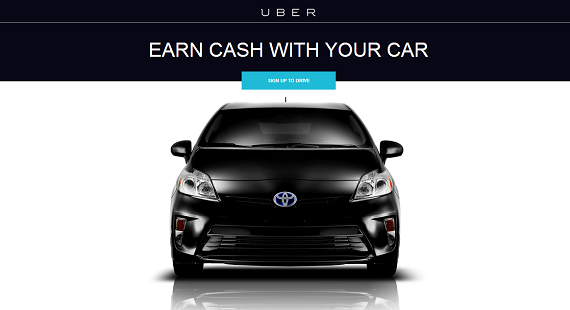This article originally published at Bloomberg here. As quickly as Uber has grown, it’s hardly been easy street for the startup. The car-booking service has faced massive protests from cabbies in Europe. It’s been the target of lawsuits and regulatory scrutiny in the U.S. And it now finds itself in a race to hire drivers, dangling $1,000 bonuses to lure them away from rivals.Amid all of that, Bill Maris, the managing partner of Google Ventures, which is an investor in Uber, said the long-term value of the company could be “$200 billion or more.”
For context, that’s roughly the market value of Toyota.
Maris, who founded the venture capital arm of Google in 2009, said he “was pounding the table” in enthusiasm for investing in Uber this year, similar to last year.
Google Ventures re-invested in the San Francisco-based company this year when it raised $1.2 billion at a $17 billion valuation, after it led last year’s funding of $258 million at a valuation of $3.5 billion. Uber is now in more than 140 cities globally.
“I am confident in Travis and his team,” Maris told Bloomberg News in an interview at Fortune’s Brainstorm Tech conference in Aspen, Colorado. “His vision is huge and he has showed he can execute,” Maris said of Uber’s co-founder Travis Kalanick.
As Uber disrupts the transportation market around the world, it’s also experimenting with delivery services and could become a huge logistics company with a market value of $200 billion or more, said Maris.
“It’s an incredibly creative team — their growth shows they are clearly onto something,” he said of Uber. But Maris also warned that, like any startup, “it could also go down to zero.”
Google Ventures has $1.5 billion under management with investments in about 250 technology companies, from health care to consumer Internet. Twenty of its portfolio companies have either gone public, such as RetailMeNot, or were acquired, such as Nest Labs.
Asked about a bubble in technology valuations, Maris said: “It’s inevitable the market is going correct by 20 percent, this year or next. The business cycle is a fact of life.”
Aside from transportation, Maris said Google is also looking at education, manufacturing and 3D printing.


